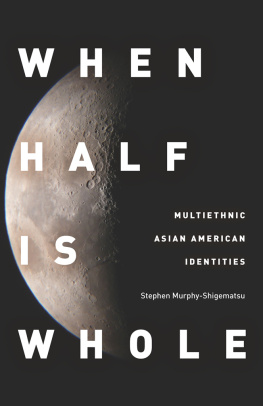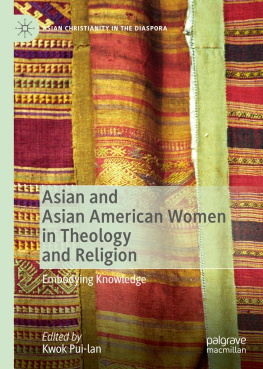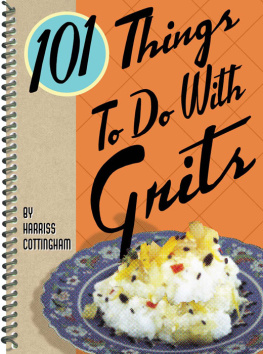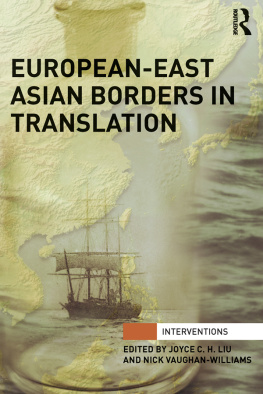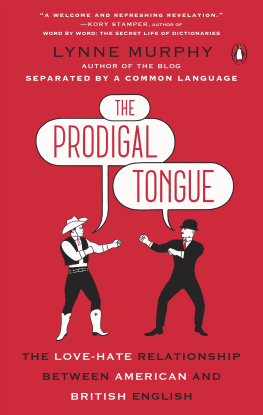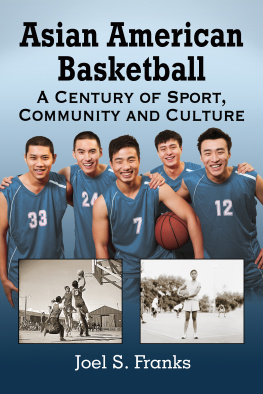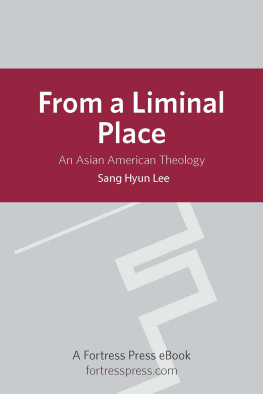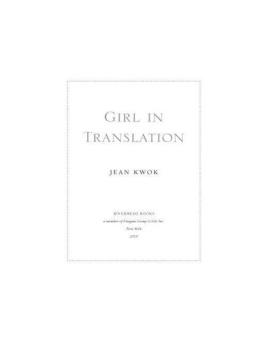Advance Praise for When Half Is Whole
Murphy-Shigematsu explores our exponentially growing Hapa demographic with personal insight and fearless self-examination. Both rigorous and graceful, this book is smart, readable, and very needed.
Kip Fulbeck, author of Part Asian, 100% Hapa
What a moving and thought-provoking book! Brilliantly nuanced, searingly honest, and beautifully written, When Half Is Whole raises profound, often uncomfortable questions about race, identity, and the search for human connection. I couldnt put it down.
Amy Chua, Yale Law School Professor and author of Battle Hymn of the Tiger Mother and Day of Empire: How Hyperpowers Rise to Global Dominanceand Why They Fall
When Half Is Whole is a beautiful book, a near-perfect bridge of genres, scholarly in its insights and the knowledge base from which it proceeds, but rich in stories and the voices of mixed-race, complicatedly Asian individuals. Stephen Murphy-Shigematsu tells their stories in prose that is like cool water running down hill. I read the book in one sitting. I will surely read it again when I need its wisdom, or when I just want to enjoy the company of Stephen Murphy-Shigematsus unique voice.
Paul Spickard, University of California, Santa Barbara
Part memoir, part oral history, and part ethnography, this volume transcends distinctions among literary and social science genres much as its subjects lives transcend racial, sexual, and national boundaries. This is a deeply moving and groundbreaking work.
Evelyn Nakano Glenn, Professor of Gender and Womens Studies and Director, Center for Race and Gender, University of California, Berkeley
When Half Is Whole is a fascinating, constantly-surprising guided journey through the varied, complex worlds of multiethnic Asian Americans. Murphy-Shigematsu writes with a subtle, engaging style that sometimes verges on poetry.
Carlos E. Corts, author of Rose Hill: An Intermarriage before Its Time
In this engaging and powerful book, Stephen Murphy-Shigematsu skillfully uses his own experience as a biracial individual as a springboard to construct incisive and penetrating narratives that describe how biracial Asian Americans compose their lives and deal creatively with the pains and promises of living within and across borders and boundaries. This is a significant, timely, and needed book that will become an essential reference in the field of race and ethnic studies.
James A. Banks, Kerry and Linda Killinger Endowed Chair in Diversity Studies and Founding Director, Center for Multicultural Education, University of Washington, Seattle
A fascinating and moving portrait of how individuals reflect upon, navigate, and reconcile multiple, and at times contradictory, social identities based on notions of race, ethnicity, and nationality. The individuals profiled here resist existing categories and boundaries by fashioning their own unique hybrid identitiesones that give meaning and purpose to their lives.
Michael Omi, University of California, Berkeley
A SIAN AMERICA
A series edited by Gordon H. Chang
The increasing size and diversity of the Asian American population, its growing significance in American society and culture, and the expanded appreciation, both popular and scholarly, of the importance of Asian Americans in the countrys present and pastall these developments have converged to stimulate wide interest in scholarly work on topics related to the Asian American experience. The general recognition of the pivotal role that race and ethnicity have played in American life, and in relations between the United States and other countries, has also fostered the heightened attention.
Although Asian Americans were a subject of serious inquiry in the late nineteenth and early twentieth centuries, they were subsequently ignored by the mainstream scholarly community for several decades. In recent years, however, this neglect has ended, with an increasing number of writers examining a good many aspects of Asian American life and culture. Moreover, many students of American society are recognizing that the study of issues related to Asian America speak to, and may be essential for, many current discussions on the part of the informed public and various scholarly communities.
The Stanford series on Asian America seeks to address these interests. The series will include works from the humanities and social sciences, including history, anthropology, political science, American studies, law, literary criticism, sociology, and interdisciplinary and policy studies.
A full list of titles in the Asian America series can be found online at www.sup.org/asianamerica.
When Half Is Whole
MULTIETHNIC ASIAN AMERICAN IDENTITIES
Stephen Murphy-Shigematsu
STANFORD UNIVERSITY PRESS
STANFORD, CALIFORNIA
Stanford University Press
Stanford, California
2012 by the Board of Trustees of the Leland Stanford Junior University. All rights reserved.
No part of this book may be reproduced or transmitted in any form or by any means, electronic or mechanical, including photocopying and recording, or in any information storage or retrieval system without the prior written permission of Stanford University Press.
Printed in the United States of America on acid-free, archival-quality paper
Library of Congress Cataloging-in-Publication Data
Murphy-Shigematsu, Stephen, author.
When half is whole : multiethnic Asian American identities / Stephen Murphy-Shigematsu.
pages cm. (Asian America)
Includes bibliographical references and index.
ISBN 978-0-8047-7517-5 (cloth : alk. paper)ISBN 978-0-8047-7518-2 (pbk. : alk. paper)ISBN 978-0-8047-8395-8 (e-book)
1. Asian AmericansEthnic identity. 2. Racially mixed peopleUnited StatesEthnic identity. 3. Transnationalism.
I. Title. II. Series: Asian America.
E184.A75M87 2013
305.895073dc23
2012015160
Typeset by Bruce Lundquist in 11/14 Adobe Garamond
Contents
Prologue
My sixteen-year-old son observed me daily for months as I sat in my office writing this book. One day I could feel his presence behind me, watching me intently, but I kept on writing. Finally, he broke the silence: So, like, whats so great about writing books, anyway?
I realize that he is trying to understand why his father spends so much time on something as seemingly unexciting as writing and I need to explain to him why I do this. I know that a glib answer is insufficient; they never are with him. So I paused for a moment to ponder the question. What was he asking me? Why bother writing? Why is it so important to me? Who cares? Who will read it? What difference will it make in their lives? Why was I writing this book, anyway?
I turned to face him and said, Well, I feel its important for me to pass on what Ive experienced, what Ive learned in my life, and to use my gifts, my talents. I can write, so I think its something I should do. I dont know who will read it, but for those who do, I hope it helps them in some way in their lives. Its my way of contributing something to the world. I listen and gather peoples stories. Then I write them down in a way that I hope will communicate something to others, so that seeing these stories will give readers something of value. I tell myself that this isnt going to be done unless I do it, just because of who I am. Its a way of making my mark, leaving something behind... not that Im planning on going anywhere right now.
My son seemed to ponder my answer, shrugged his shoulders, and walked away without a word. I went back to writing, with a clearer purpose to my endeavor. My son had forced me to reflect on what I was doing and I had a better understanding of why I was writing this book. Did he understand what I was trying to say? Perhaps not, but maybe someday he will understand why his father spent so much of his precious time writing this book. Given my life circumstances and experiences this was a way to find meaning.
Next page
